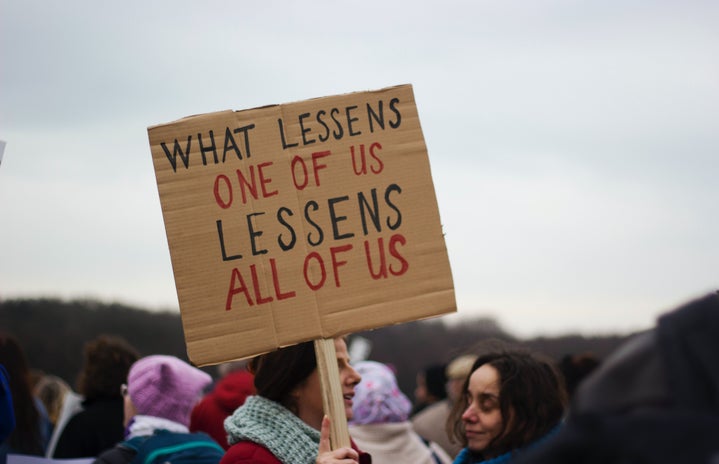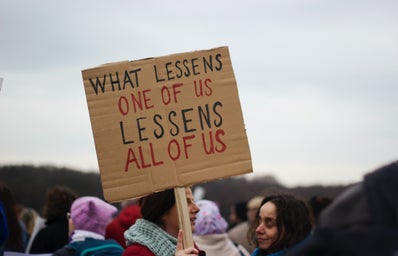Her Campus at U Ottawa acknowledges that we are located on the stolen and unsurrendered land of the Algonquin people.
Being neutral is usually the route people take during times of argument or conflict. This can be at the Thanksgiving dinner table, between friends, and in politics. However, in this article, I will be touching on how being neutral in politics is not only a way to show off your privilege in a certain situation, but also a way of not being true to yourself.
Firstly, showing that you are neutral about an issue that affects people similar to your peers and loved ones seems like a betrayal. Though this may seem like an exaggeration to some, the Harvard Business Review conducted a survey of 4,000 people and their stances on neutrality, and most responses said that they would be suspicious of those who remained neutral during political conflicts. This survey was conducted in a large variety of workplaces. Many participants stated they would feel wary of their manager or superior if they chose to remain silent on concerning or current political activities.
To add, many celebrities have received backlash for this, as well. One example is Taylor Swift, and her silence on certain issues until she had to come on social media to explain her stance. Neutrality can be dangerous in terms of reputation for oneself and their business. Additionally, it can show how privileged one is.
Moving on to my second point: neutrality is not only dangerous but is also a reflection of the privilege and power you hold. In the democratic society in which we currently reside, usually, people think the only responsibility we have is to vote.
However, it doesn’t just stop at voting; it goes beyond that. This includes speaking up for those who can’t on issues that the government feels opposed to. Marginalized communities need the support of the privileged to see change. By being “apolitical,” you are not only exhibiting how these issues are not affecting you but also the privilege you have to ignore these issues while others have to live through them every day.
It is disrespectful to the peers struggling with these issues, and the lack of your help furthers the point. It’s important to understand that you are a part of a larger mass and that the decisions made by the government are to be questioned more when it affects a larger group, even if you’re not included.
An example of this can be huge movements like “Me too,” “Black Lives Matter,” and “Every Child Matters.” These movements and protests would not carry the strength they do if it were not for the fact that various types of people from different statuses support them. These movements have made it to government administrative processes, as well as certain bills. By people not staying silent, these protests have gotten the momentum needed to make cultural and policy changes.
Staying silent in political matters hurts those who are affected by those issues. Not only are you contributing to the problem, but you’re also disrespecting your friends who may be affected by these problems. Additionally, when thinking about it from a business perspective, staying silent hurts your business and the personnel involved in it.
You’ll never know what effects and changes your voice can bring, so talk and have the necessary conversations with people!


